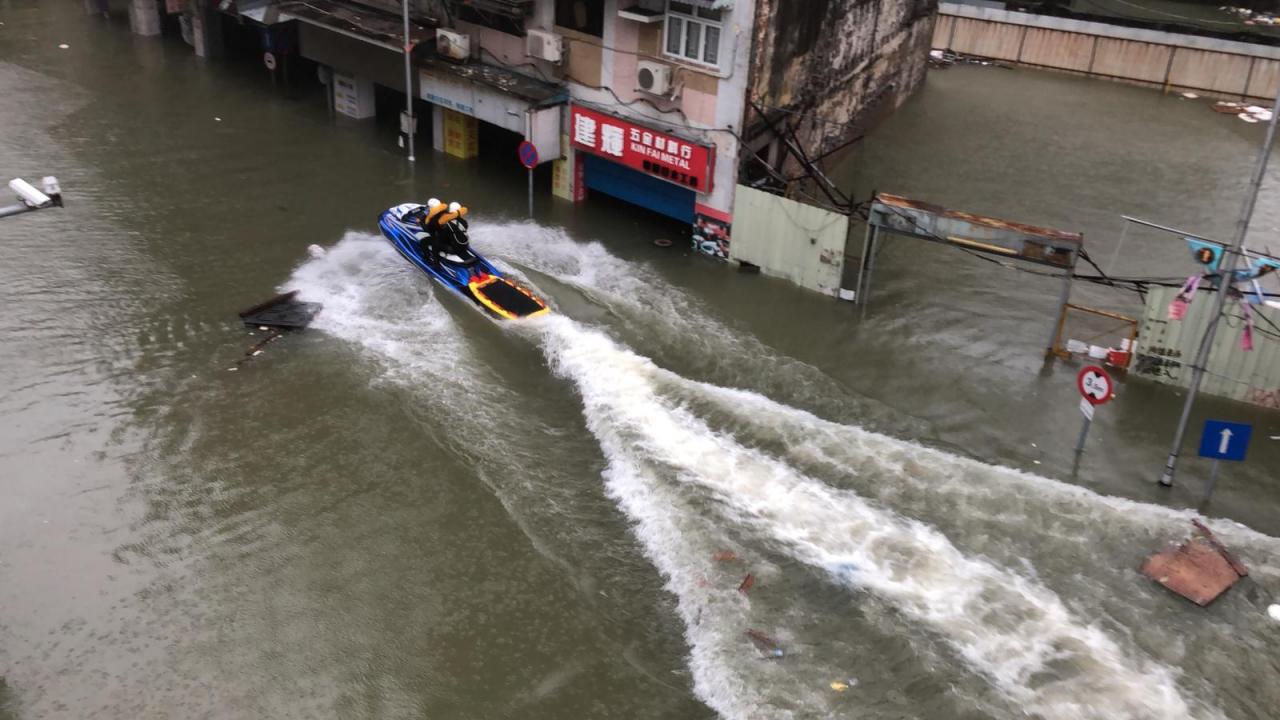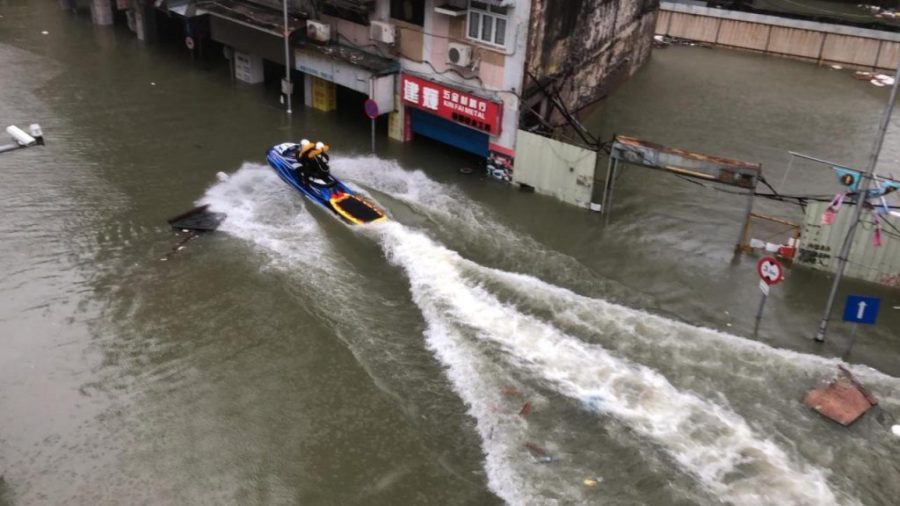The financial losses caused by September’s Super Typhoon Mangkhut to Macau were estimated at 1.55 billion patacas – 520 million patacas in direct losses and 1.03 billion patacas in indirect ones – according to the Statistics and Census Bureau (DSEC).
Super Typhoon Mangkhut pummelled Macau on September 16, and caused 40 injuries.
The government was, in general, praised by residents for the significant improvements in its disaster response to Super Typhoon Mangkhut, compared to when Super Typhoon Hato killed 10, and injured 244 on August 23 last year
While Mangkhut inflicted no recorded deaths, the city’s various low-lying areas were still hit by serious flooding caused by a storm surge.
After the Mangkhut assault, Secretary for Security Wong Sio Chak noted that the various tasks to respond to typhoons and other disasters that the government had prepared since last year enabled the authorities to obtain a “relatively ideal” achievement in its tackling of Super Typhoon Mangkhut.
The government announced in February the revised estimate of financial losses of 12.55 billion patacas caused by Hato, comprising 9.05 billion patacas in direct losses and 3.5 billion patacas in indirect ones. The government first announced on September 6 last year – two weeks after Hato’s onslaught – the preliminary estimate of 11.47 billion patacas in financial losses caused by Hato.
According to Monday’s DSEC statement, the estimation of the financial losses caused by Mangkhut carried out by the bureau mainly covered financial losses incurred by businesses, as well as losses concerning housing, vehicles, municipal facilities, and certain public service systems.
DSEC officials collected data from various sources for analysis and estimation, including information concerning the damage caused by Mangkhut provided by various government entities, the bureau’s historical performance data by the city’s various business sectors, and assessments of damage to buildings through on-site inspections, the statement said. The DSEC officials also interviewed some of the affected business owners about their financial losses.
With the government and the community having been well prepared for Mangkhut before its arrival, the financial losses caused by the typhoon were significantly lower than those caused by Hato, the statement pointed out.






